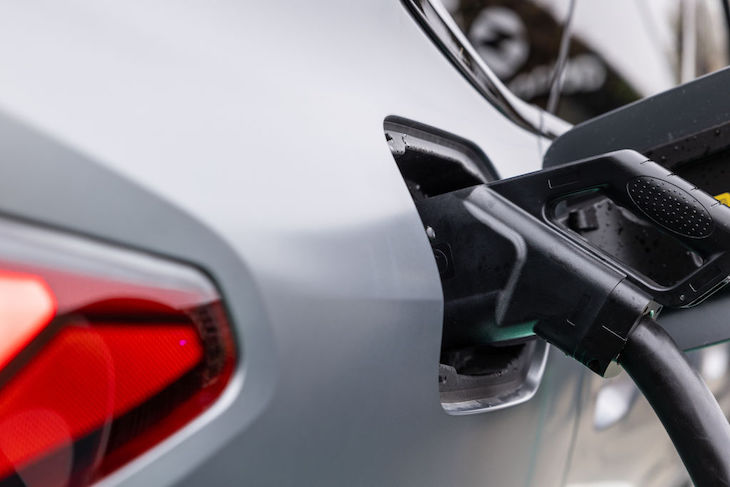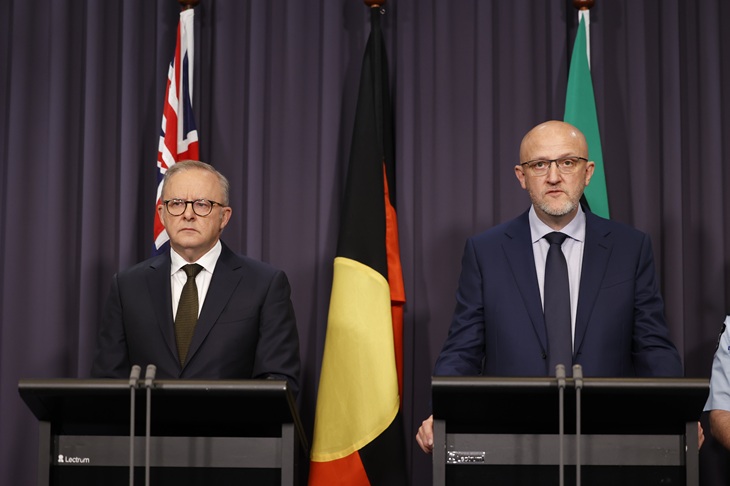
MILAN, ITALY - DECEMBER 11: A general picture shows a cable charging an electric BMW i4 car during the inauguration of an Atlante electric vehicle charging station, located at CityLife district, on December 11, 2023 in Milan, Italy. Atlante is a company part of NHOA Group, a global player in energy storage and electric mobility, developing technologies enabling the transition towards clean energy and sustainable mobility and creating the largest fast and ultra-fast charging network in Southern Europe, 100% enabled by renewables and vehicle-grid-integrated (VGI). (Photo by Emanuele Cremaschi/Getty Images)
The UK government has announced a new initiative aimed at encouraging electric vehicle (EV) adoption by offering grants of up to £3,750 for motorists purchasing electric cars. This decision comes as the government seeks to utilize surplus funds, though critics argue it may be an ineffective strategy reminiscent of previous efforts by the Conservative government, which provided grants up to £4,000 before they were reduced and ultimately withdrawn in 2022.
The rationale behind subsidizing electric car purchases is to promote environmentally friendly transportation. Yet, critics question the logic of this approach when a more significant impact on carbon emissions could be achieved by incentivizing alternative modes of transport. For instance, a more substantial grant of £7,500 could be offered to individuals who opt not to purchase a vehicle and instead rely on walking or cycling.
Concerns about the viability of EVs persist. Heidi Alexander, the UK Transport Secretary, highlighted one of the main barriers to EV adoption—housing conditions. Many residents, particularly those living in terraced houses without dedicated parking spaces, find it impractical to own an electric car. Statistics indicate that around a quarter of UK households face similar challenges. Furthermore, those in multi-story apartments often lack easy access to charging infrastructure.
The government’s effort to stimulate EV sales also involves stringent regulations. The Zero Emission Vehicle (ZEV) mandate requires manufacturers to ensure that 28 percent of the cars they sell this year are fully electric. Failure to meet this target could result in fines of £15,000 for each vehicle sold below the threshold. As of now, the industry has only achieved 21.6 percent of this target, indicating a potential financial shortfall for manufacturers.
Despite the government’s attempts to incentivize electric vehicle purchases through grants and regulatory mandates, many motorists remain hesitant. The failure of previous initiatives raises questions about the effectiveness of these strategies. The current grants may not significantly change consumer perceptions or purchasing habits, particularly when many motorists express a lack of desire to switch to electric options.
Moreover, the UK’s approach to EV incentives could complicate international trade relations, particularly with the Trump administration. The government’s intent to restrict grants to UK-made electric vehicles may face backlash, as it mirrors the protectionist policies seen in Joe Biden’s Inflation Reduction Act. Critics suggest that this strategy could strain relations and hinder negotiations.
As the government rolls out this new initiative, it remains to be seen whether the grants will effectively stimulate the electric vehicle market. The challenges of infrastructure, consumer perception, and international relations highlight the complexities involved in transitioning to a greener transportation system. The debate around the most effective methods for promoting sustainability in the automotive sector continues, as the government navigates this multifaceted issue.







